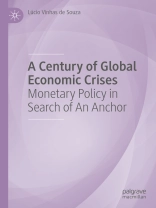This book explores the end of the era of low inflation and stable price increases, known as “The Great Moderation”, and the impact this will have on monetary policy. The macroeconomic trends and economic policy issues observed within developed countries over the last 70 years are linked with the economic theory debates of the time to highlight how the current economic challenges came about. The limitations of past economic policies are highlighted to help create a new policy framework for an era defined by high inflation, low economic growth, large budget deficits, and increased private sector debt.
This book presents a new understanding of monetary policy that engages with the changing behaviour of economic agents. It will be relevant to researchers and policymakers interested in monetary policy and the political economy.
Содержание
1. Introduction.- 2. Forgotten worlds: the stagflation of the 1970s.- 3. From Volcker to China: The “Great Moderation” begins.- 4. Houses made of sand: The “Global Financial Crisis”.- 5. Trojan horses: the long shadow of the euroarea sovereign crisis.- 6. COVID 19: the fiscal and monetary responses to a global pandemic.- 7. The next Horseman of the Apocalypse: Russian invasion of Ukraine and a global price shocks.- 8. Looking back, looking forward: monetary, fiscal and structural polices for an older, indebted and more fragmented world.
Об авторе
Lúcio Vinhas de Souza is currently a Fellow at Harvard University, Cambridge and a Visiting Professor at Brandeis University, Boston, USA. He is also the former Chief Economist of Moody’s and a former Advisor to European Commission President Jean-Claude Juncker.












